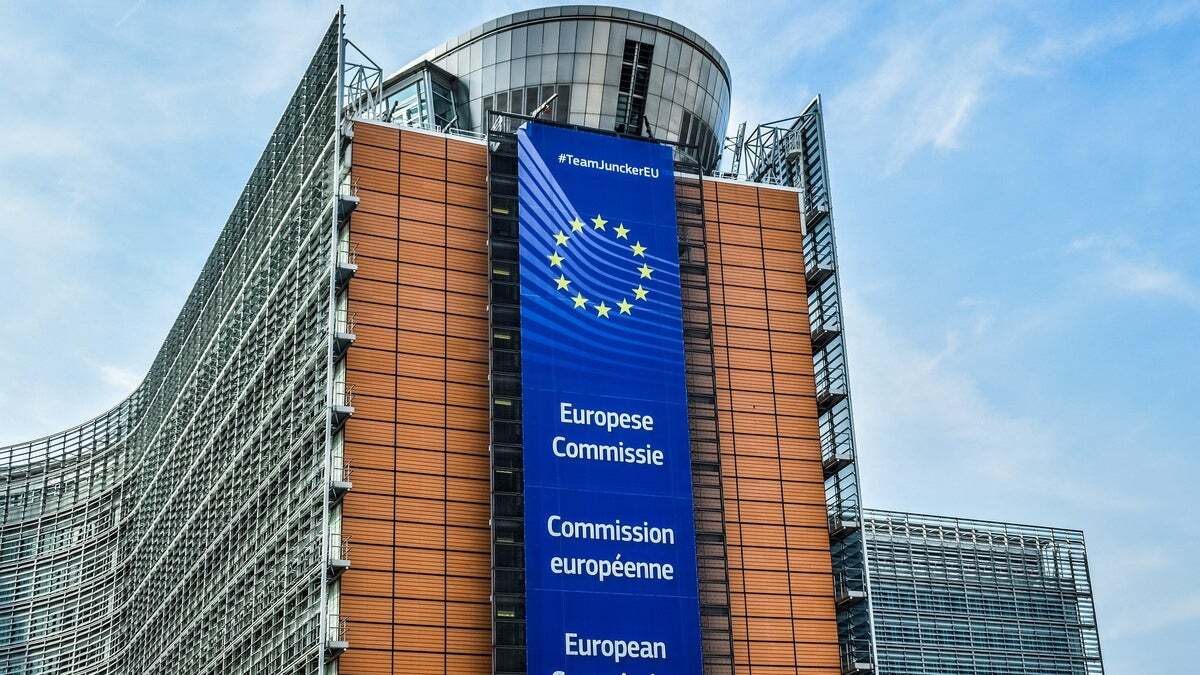Apple faces $38 billion fine after EC makes preliminary ruling on DMA violations

A bit more than a week ago we told you that the European Commission (EC) was investigating whether it should charge Apple with violating its Digital Markets Act (DMA). The DMA is the legislative act that forced Apple to make changes to the iPhone in the EU's 27 member countries. These changes allow iPhone users to sideload apps from third-party app stores, and use third-party browsers that run on non-WebKit engines. The DMA also allows developers to give consumers the option to make in-app payments using third-party payment platforms instead of being forced to pay through Apple's platform which generates a commission for the tech giant.
A press release disseminated Monday morning from the EC says, "The European Commission has informed Apple of its preliminary view that its App Store rules are in breach of the Digital Markets Act (DMA), as they prevent app developers from freely steering consumers to alternative channels for offers and content. In addition, the Commission opened a new non-compliance procedure against Apple over concerns that its new contractual requirements for third-party app developers and app stores, including Apple's new Core Technology Fee (CTF), fall short of ensuring effective compliance with Apple's obligations under the DMA."
What is the Core Technology Fee?
The Core Technology Fee is charged to developers who decide to be governed by Apple's new App Store rules in the 27 EU countries. These new rules allow developers to offer consumers the ability to make in-app payments through alternative payment processors in the EU. The Core Technology Fee charges developers €0.50 (valued at approximately 54 U.S. cents) for each annual install over one million.

The EC releases a preliminary finding stating that Apple violated the DMA
Smaller developers are protected from paying the Core Technology Fee. According to Apple, "Developers whose apps do not surpass one million first annual installs per year and nonprofits, educational institutions, and government entities with an Apple Developer Program fee waiver do not pay the CTF. The CTF is also not required for developers with a no revenue business that offer free apps without monetization. Additionally, small developers (earning less than €10 million in global business revenue) are provided with a 3-year free on-ramp to the CTF and won't pay the CTF for first annual installs that exceed the threshold within a 3-year period."
If developers in the EU who qualify for paying the CTF want to avoid it, they can continue to follow the old rules and have in-app payments directed to Apple's payment processing platform. If a developer favors that route, they will have to pay Apple a commission equaling 10%-17% of the value of the transaction.
Besides the CTF, the EC is concerned about the number of steps an iPhone user has to take in order to install an alternative app storefront or install an app from a third-party app store. The EC will also investigate the eligibility requirements that Apple has for developers allowing them to offer alternative app stores or distribute apps from the web on the iPhone. The issue is whether some of Apple's requirements comply with the DMA.
The EC says that if its preliminary findings hold, Apple would be found not to be in compliance with Article 5(4) of the DMA "which requires gatekeepers to allow app developers to steer consumers to offers outside the gatekeepers' app stores, free of charge."
When will the EC reach a decision and how much can Apple be fined?
If Apple is found to have breached the DMA, it could be subject to a fine no higher than 10% of its global revenue which was $383 billion in the last fiscal year. Repeat offenders can be charged up to 20% of their annual revenue. A decision on Apple's compliance with the DMA will be made on or before March 25th, 2025.
In a statement, Apple said, "Throughout the past several months, Apple has made a number of changes to comply with the DMA in response to feedback from developers and the European Commission. We are confident our plan complies with the law, and estimate more than 99% of developers would pay the same or less in fees to Apple under the new business terms we created. "
The tech giant continued by saying, "All developers doing business in the EU on the App Store have the opportunity to utilize the capabilities that we have introduced, including the ability to direct app users to the web to complete purchases at a very competitive rate. As we have done routinely, we will continue to listen and engage with the European Commission."










Things that are NOT allowed: